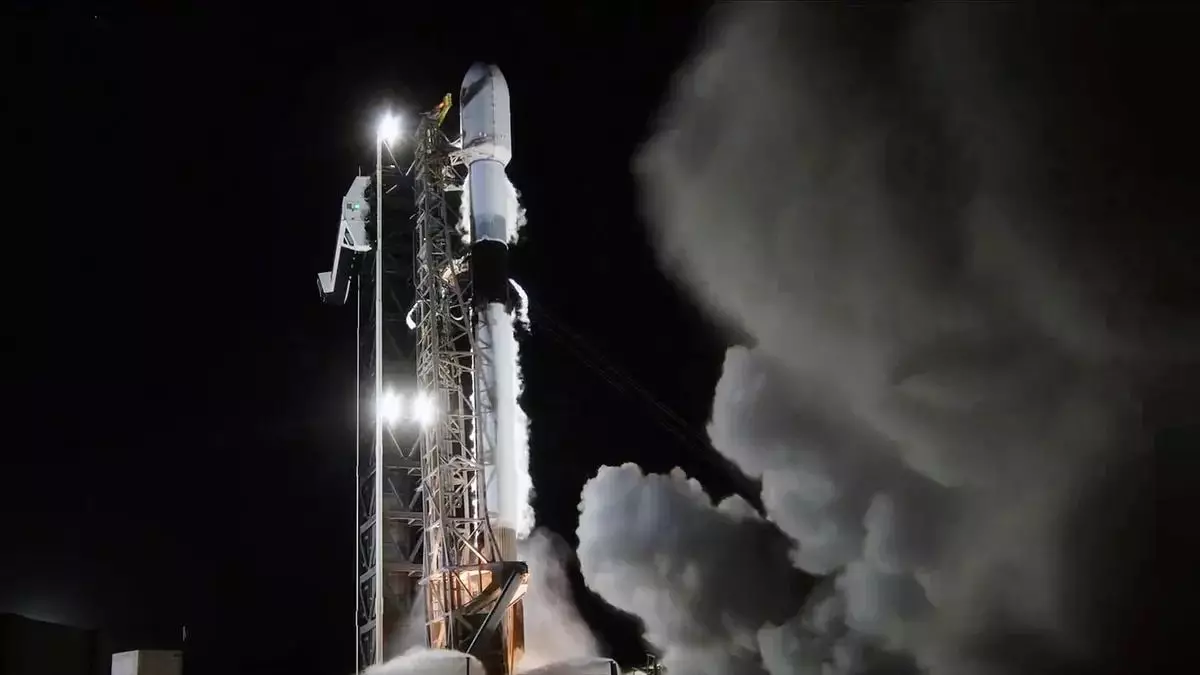As the world becomes increasingly interconnected and reliant on space technologies, the latest launch of the Falcon 9 rocket on April 21 marks a significant milestone for European aerospace. The mission, aptly branded Bandwagon-3, carried a groundbreaking payload: the Phoenix 1 capsule, developed by the innovative team at Atmos Space Cargo in Germany. This mission is not merely about sending a capsule into orbit; it symbolizes Europe’s potential resurgence in the realm of space exploration, a domain often overshadowed by American progress. Phoenix 1 is poised to be a pioneer, initiating the first atmospheric reentry attempt by a European private entity. It embodies the audacity required to push the boundaries of technology and exploration, challenging the status quo.
The Quest for Innovation
Phoenix 1 is equipped with an inflatable heat shield, a testament to creative engineering designed to protect high-value cargo during its descent into Earth’s atmosphere. The very notion of developing novel technologies to further space logistics reveals a compelling vision possessed by Atmos Space Cargo. The company’s ambition extends to revolutionizing microgravity research and in-orbit manufacturing, promising a future rich with applications across multiple sectors—from life sciences to defense. This is precisely what we need in today’s rapidly-evolving landscape: a shake-up that fosters innovation while also emphasizing the importance of safety and accessibility in space for commercial ventures.
The Collaborative Spirit of Modern Launches
In an era marked by increasing collaboration, Bandwagon-3 illustrates a robust paradigm shift in how space missions can operate. The inclusion of other payloads—like the 425Sat-3 and Tomorrow-S7—highlights the growing trend of cost-effective rideshare flights. These missions not only minimize expenses for individual projects but also enrich the spectrum of data and insight that can be acquired from shared ventures. By promoting these collaborative initiatives, SpaceX is not merely boosting its own bottom line; the company contributes to a broader ecosystem supportive of diverse scientific research and commercial activities. The partnership among multiple stakeholders marks a new chapter in space exploration where collective success can overshadow individual competition.
A Crucial Moment for Europe
The repercussions of a successful Phoenix 1 splashed down cannot be overstated. If this mission concludes successfully, it will lay the groundwork for future explorations and experiments by European enterprises. It offers the possibilities of enhanced credibility and investment into developing homegrown space technologies. With every milestone achieved by entities like Atmos Space Cargo, trust in Europe’s capabilities grows, giving birth to future endeavors and initiatives that might have once seemed insurmountable.
This moment represents more than just a mission; it signifies a cultural rejuvenation in aerospace across Europe, urging rival nations to operate in a more unified manner. The test flight of Phoenix 1 stands not just as an exercise in exploration, but as a beacon for aspiring entrepreneurs and scientists, reminding them of the infinite possibilities that await when we dare to dream big and act boldly. This message must resonate across our collective conscience as we continue to push the frontiers of what is humanly possible.



Leave a Reply